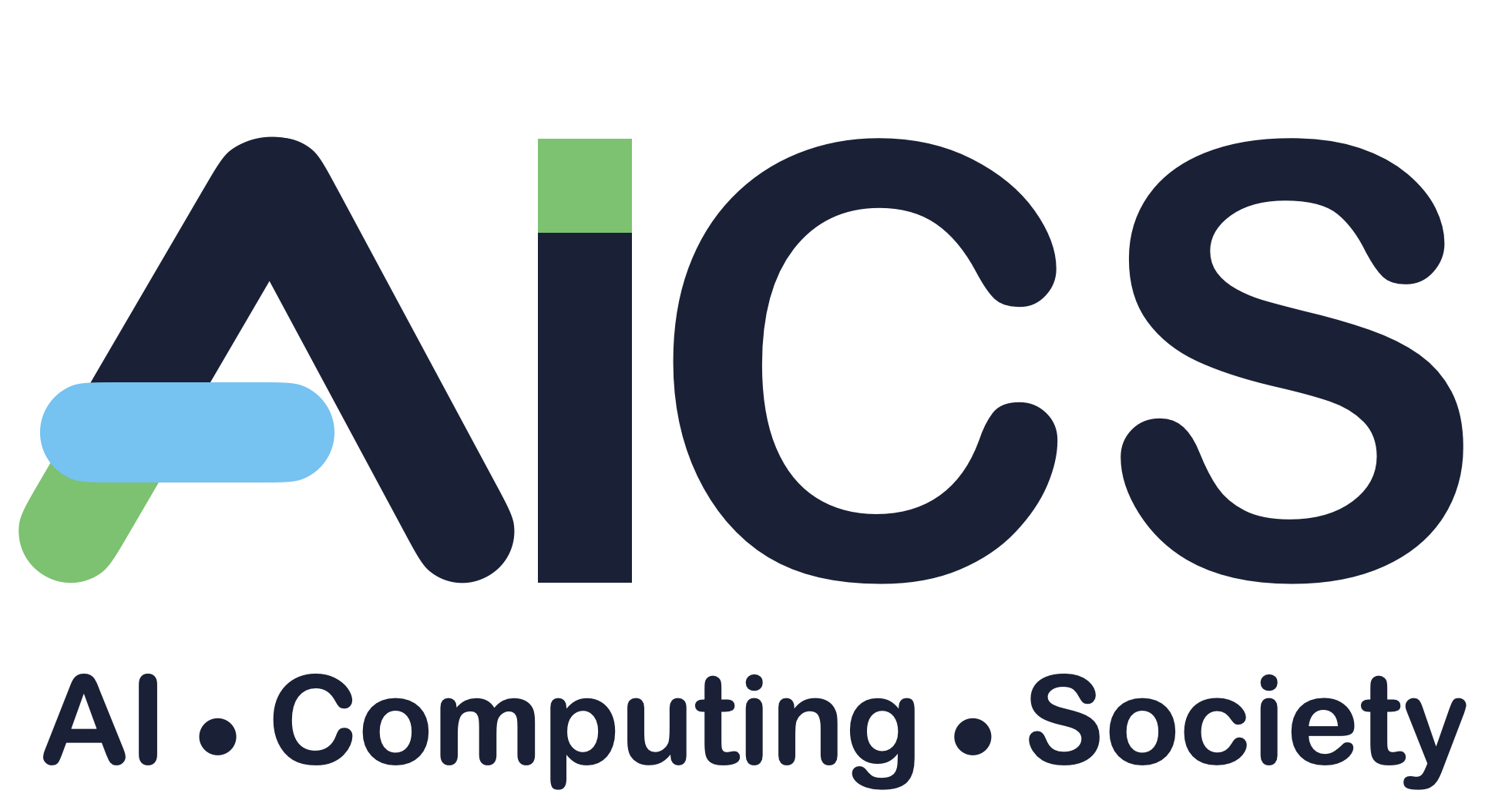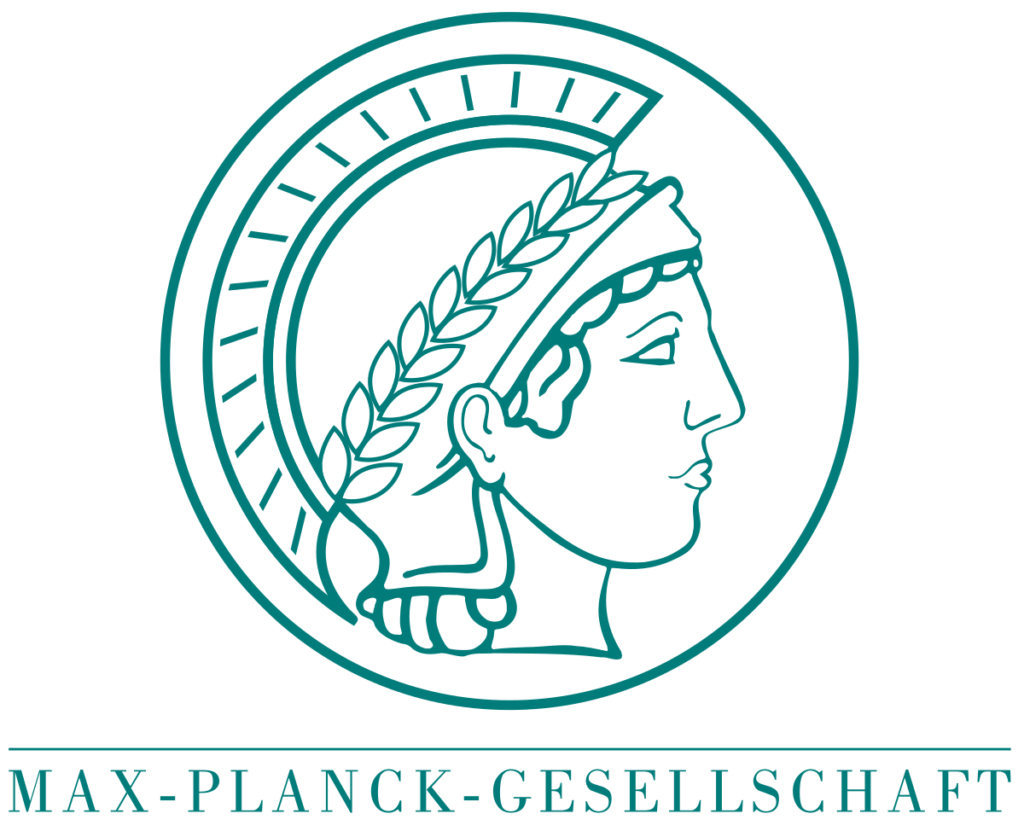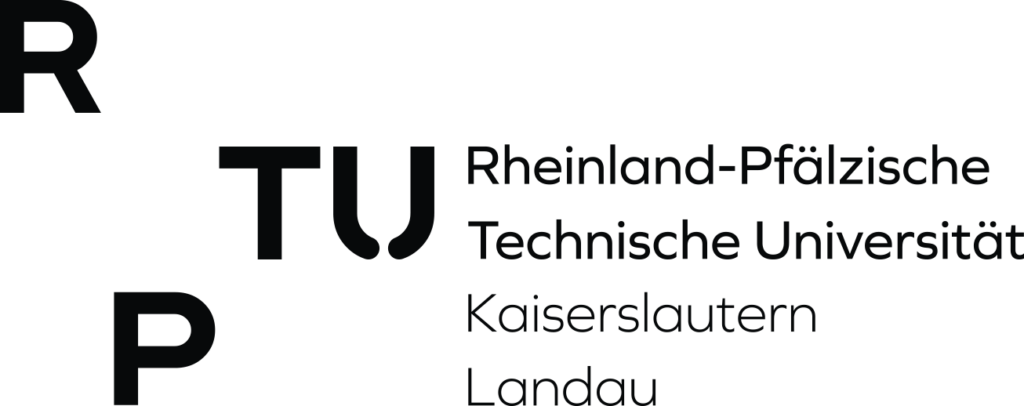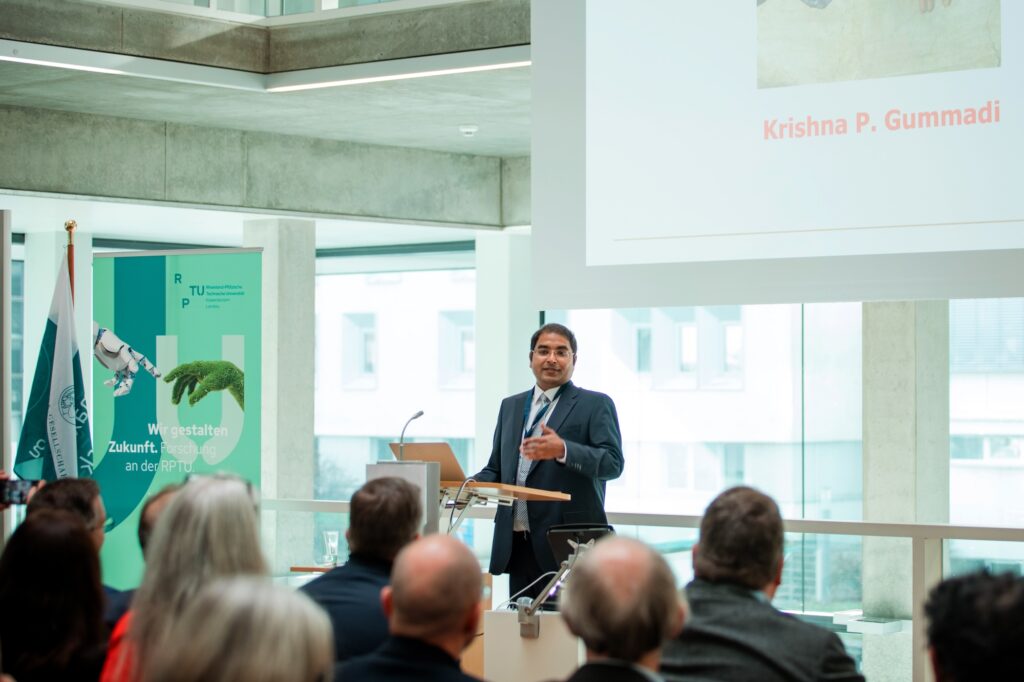
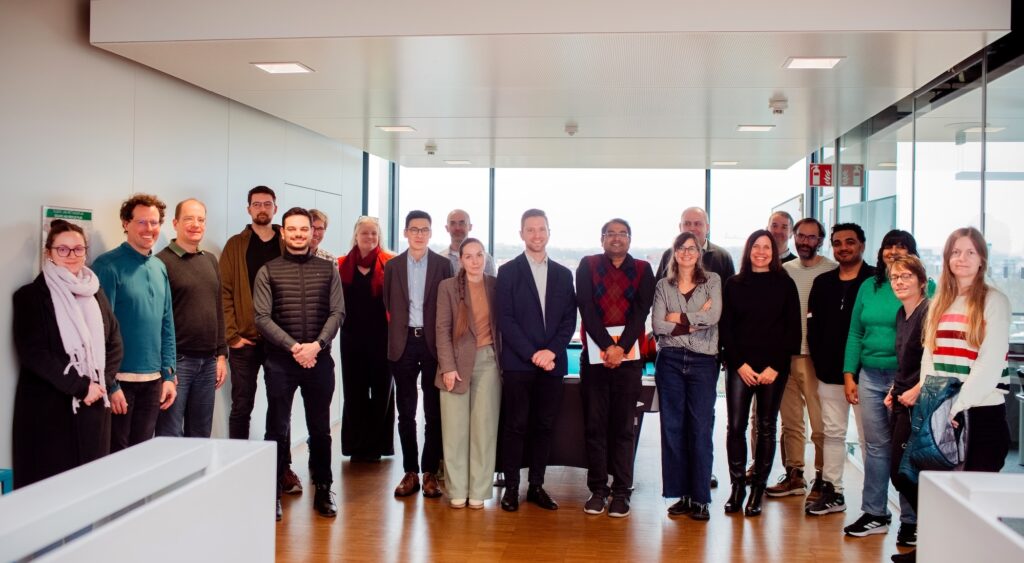
AI and computing technologies hold tremendous potential to reshape our world. At AICS, we believe that to harness this potential effectively, we must ensure these advancements are guided by ethical principles and societal needs.
The AICS (AI, Computing & Society) is a collaborative research initiative launched by the Max Planck Institute for Software Systems (MPI-SWS) and the Department of Computer Science at Rheinland-Pfälzische Technische Universität Kaiserslautern-Landau (RPTU). This program focuses on exploring the societal impacts, ethical considerations, and technological advancements in artificial intelligence. Supported by the Max Planck Society, the Ministerium für Wissenschaft und Gesundheit Rheinland-Pfalz, and RPTU, the AICS research group aims to drive responsible and inclusive innovation in AI, addressing key societal challenges of the 21st century.
We are thrilled to formally kick off the AICS initiative with an event on December 2, 2024 at the MPI-SWS campus in Kaiserslautern. The program will feature welcome addresses from prominent institutional leaders, an overview of the initiative by Krishna Gummadi, Scientific Director at MPI-SWS, and inspirational talks by distinguished experts such as Alan Mislove, Senior Associate Dean at Northeastern University, and Meeyoung Cha, Scientific Director at the Max Planck Institute for Security & Privacy. This gathering represents our commitment to fostering a collaborative environment that bridges academia, industry, and policy to advance responsible AI research.
Max Planck Institute for Software Systems (MPI-SWS):
The Max Planck Institute for Software Systems (MPI-SWS) is part of Germany’s renowned Max Planck Society, which operates over 80 institutes focused on basic research. Known for excellence, the Max Planck Institutes (MPIs) conduct groundbreaking research in sciences, technology, and humanities. MPI-SWS, along with the MPI for Informatics, MPI for Intelligent Systems, and MPI for Security and Privacy specializes in computer science research.
As publicly funded institutes, MPIs provide a unique environment that blends the best aspects of universities and research labs: they support academic freedom, offer substantial institutional funding, and provide world-class infrastructure and administrative support. MPIs also serve as training grounds for doctoral and postdoctoral researchers, and host a diverse array of visiting scholars.
University of Kaiserslautern-Landau (RPTU)
The University of Kaiserslautern-Landau is a public research university in the German state of Rhineland-Palatinate, formed in 2023 through the merger of the Technical University of Kaiserslautern (TU Kaiserslautern) and the University of Landau. With strong roots in engineering, computer science, natural sciences, and interdisciplinary research, RPTU continues the long tradition of TU Kaiserslautern as one of Germany’s leading technical universities.
As a publicly funded university, RPTU combines high-quality teaching with internationally visible research. It maintains close collaborations with major research institutions, including the Max Planck Institutes, Fraunhofer Institutes, and the German Research Center for Artificial Intelligence (DFKI). RPTU offers a dynamic academic environment that supports undergraduate and graduate education, doctoral training, and applied as well as fundamental research, fostering strong connections between academia, industry, and society.
